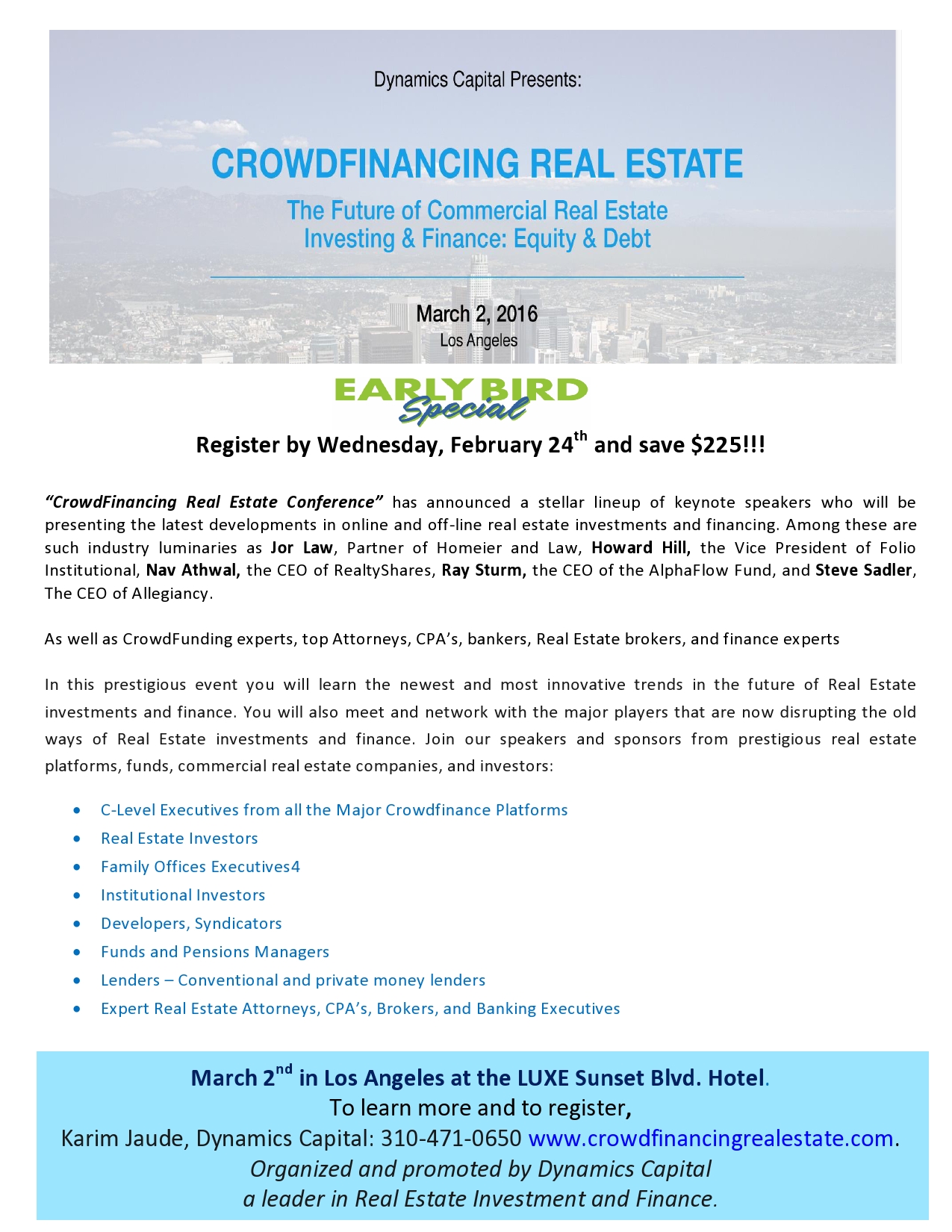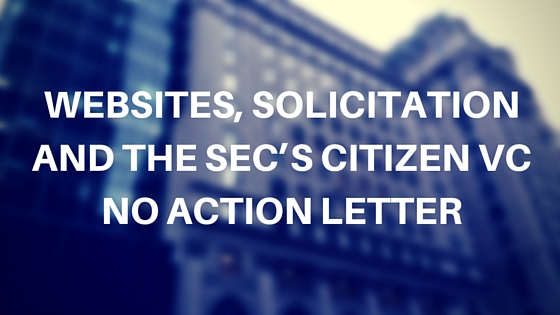The Internet age has arrived to capital raising, and that has forever altered the way businesses raise awareness about their investment opportunities. Balancing the digital age of investing with investor protection and the needs of business community is a key focus for lawmakers and the good folks at the Securities and Exchange Commission.
Rules 506(b) and 502(c) of Regulation D
Currently, Rule 506(b) of Regulation D is the mechanism that allows issuers to conduct a securities offering without having to register the transaction with the SEC, as long as it isn’t a "public offering". This means selling mainly to "accredited investors" (and not more than 35 non-accredited investors). Private offerings using Rule 506(b) must also comply with Rule 502(c), which prohibits issuers from using general advertising or general solicitation to market their securities.
Unrestricted Websites
For those conducting Rule 506(b) offerings, in order to stay on the right side of the SEC rules, a publicly accessible website can profile general facts about your business but no information on the 506(b) securities offering. The types of information that will get you in trouble include predictions, projections, forecasts, valuation opinions, performance, and other information that may entice investor to invest in an offering. Unless you’re conducting a Rule 506(c) offering, unrestricted websites with any investment information on it are a bad idea.
Restricted Websites
Consider setting up a restricted-access website or area of your website that allows access only to accredited investors with whom you have a substantive relationship. This is an approach taken by firms like Citizen VC. Inc., who first work to establish a "relationship" with potential investors. Citizen VC sought clarification from the SEC that their approach would be seen as compliant. Here’s an excerpt from their letter to the SEC:
"In order to apply for membership, Citizen VC requires all prospective investors, as a first step, to complete a generic online "accredited investor" questionnaire. The satisfactory completion of the online questionnaire is, however, only the beginning of Citizen VC’s relationship building process."
The letter goes on to detail additional steps in Citizen VC’s "relationship building process" and to outline its own legal analysis of relevant sections of the Securities Act.
SEC Compliance & Disclosure Interpretation
The SEC published its response to Citizen VC on its No-Action, Interpretive and Exemptive Letterswebpage. In a nutshell, the SEC staff agreed that the approach outlined by Citizen VC in its August 2015 letter would not constitute general solicitation or general advertising within the meaning of Rule 502(c) of Regulation D.
The SEC wants to ensure that there is a "pre-existing" relationship with accredited investors before they a) are permitted access to the restricted area and b) are provided with any information about the offering. They’ve also made it clear that simply asking potential investors to "click a box" on a generic form will not suffice as a means to establish this pre-existing relationship. The policies and procedures that Citizen VC undertook to evaluate the prospective investor's sophistication, financial circumstances and ability to understand the nature and risks of the securities to be offered led the SEC to concur that they had indeed developed substantive, pre-existing relationship with investors.
To view the No Action Letter, visit: http://www.sec.gov/divisions/corpfin/cf-noaction/2015/citizen-vc-inc-080615-502.htm
Don’t want to restrict your website and jump through hoops to establish a pre-existing relationship with your prospective investors? Try a Rule 506(c) offering which allows you to publicly raise capital from anyone so long as you verify that the folks that end up investing are accredited investor. Learn more at VerifyInvestor.com.


